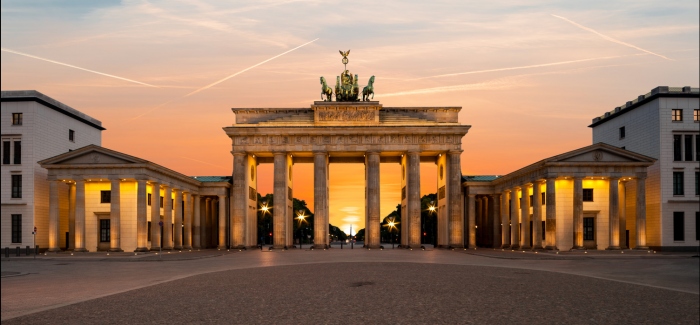Thinking about applying to study in France? Get quick answers to all your questions with our list of FAQs, covering everything from applying to study at French universities, to finding funding and extending your stay in the country. Scroll down for an overview of higher education in France (including the grande école system), admission requirements, student visas, tuition fees, scholarships and opportunities to work in France after your studies.
1. How is higher education in France organized?
In addition to around 250 “grandes écoles” (see question 2), France has 83 public universities. These provide courses in a comprehensive range of subjects, catering for around 80% of tertiary-level students. France also offers a selection of highly respected art and architecture schools, as well as colleges specializing in fields such as fashion, film, hospitality, journalism, performing arts and social work.
Many French universities and other higher education providers are organized into clusters, known as PRES (short for pôles de recherche et d'enseignement supérieur), which bring together universities, research institutes and specialized schools. Members of each PRES share resources and collaborate on both research and course provision, with degrees sometimes conferred by the overall PRES, rather than a single institution.
2. What is a “grande école”?
One of the most distinctive elements of higher education in France is the system of “grandes écoles”. There are elite institutions typically characterized by a relatively small intake, highly competitive admissions, specialization in a single field (often business or engineering, though some grandes écoles cover a wide range of subjects) and reputation for educating a high proportion of the country’s leading politicians, civil servants, business leaders and researchers. Examples of prominent grandes écoles include Ecole normale supérieure (ENS Paris) and Ecole Polytechnique – France’s two highest entrants in the QS World University Rankings® 2014/15.
3. What types of degree do French universities offer?
In line with the Bologna Process, French universities offer three levels of degree: the licence (completed in three years), the master (requiring an additional two years) and the doctorate (usually an additional three years). Master’s degrees are classified as either ‘research’ (designed for those intending to progress to a doctorate) or ‘professional’ (for those intending to enter the workplace).
4. How can I apply to French universities?
Students from 33 countries (listed at www.campusfrance.org) are required to apply using the online CEF process provided by government agency Campus France. This covers both university and visa applications. Students from other countries should apply directly to the institutions they are interested in, following the process detailed on the official website.
5. Do I need a visa to study in France?
Students from EU/EEA countries do not need a visa to study in France. Those from elsewhere will need to apply for an extended-stay visa with residency permit (VLS-TS), either via the CEF process (see question 4) or from their nearest French embassy. When considering visa applications, officials are required to consider applicants’ academic background, level of preparation, study plans, and proficiency in the French language. Applicants are also asked to show they have sufficient financial resources – around €615 (US$670) per month, the equivalent of a base-rate monthly governmental scholarship.
6. Do I need to be fluent in French?
While most undergraduate programs are taught in French, the country offers a large selection of English-taught courses at postgraduate level. Government agency Campus France offers a searchable online database of English-taught programs, and you can also search for relevant courses in France using QS Course Finder.
Depending on the language in which the program is taught, students may be asked to submit proof of proficiency in either French or English. This can be through evidence of completing an earlier degree in the relevant language, or by taking a language test such as the DELF, DALF, IELTS or TOEFL.
7. How much are tuition fees at French universities?
France’s public universities offer higher education at a very low cost, with only nominal fees charged. Rates for each year are set nationally, with the same low fees charged to both domestic and international students. As of 2014-15, annual rates are €189.10 for licence programs, €261.10 for master’s programs, €396.10 for doctoral programs and €615.10 for programs leading to the diplôme d’ingénieur (a range of approx. US$200-670).
At private institutions, fees are significantly higher, though still fairly modest in a global context. Private fees are likely to be in the range of €3,000 to €10,000 (US$3,200-10,900) per year, though leading business schools may charge up to €30,000.
8. How much are living costs in France?
As you may expect, living costs are higher in Paris than elsewhere in France. Campus France recommends a monthly budget of €1,000 for students in Paris, and €800 for those outside the capital. Even so, the relatively low tuition fees go a long way towards offsetting higher living expenses even in the capital – this overall affordability is one of the factors underlying Paris’ position at the top of the QS Best Student Cities index, a position it has now held for three years running.
9. Can I work in France while I study?
Students from within the EEA and Switzerland are free to pursue work alongside their studies without any restrictions. Those from other countries can work up to 965 hours per year (equivalent to 60% of a full working year), as part of the permissions granted with the VLS-TS visa and residency permit. Internships completed as part of a study program are not counted within this.
10. Can I get a scholarship to study in France?
Talented international students may be able to obtain funding via the Eiffel Excellence Scholarship Programme. This provides an allowance of €1,181 per month for 12-36 months at master’s level, and €1,140 per month for up to 10 months at PhD level. Other funding options available to international students include grants via the EU’s Erasmus program, awards from individual universities and funding provided via regional councils, usually in partnership with public research agencies such as the Centre National de la Recherche Scientifique (CNRS).
Doctoral students can also apply for a contrat doctoral, which means they legally become an employee of the university, receiving a regular salary in return for research and teaching work. These contracts are for three years, with a nationally set minimum salary of at least €1,685 (US$1,830) per month.
11. Can I stay and work in France after I graduate?
In order to stay on and work in France after graduating, you’ll need to apply for a change of residency status; this can be done via the local prefecture once an offer of employment has been received and accepted. Alternatively, international students graduating at master’s level or above can seek permission to extend their student residence permits for up to a year. During this time they can work for up to 60% of the legal working week without applying for a change of status, unless their earnings exceed 150% of the minimum wage (€9.61 per hour as of January 2015); if this is the case they must apply for full-time employment status.
Got more questions about studying in France? Visit our country guide or ask a question in the comments below.












